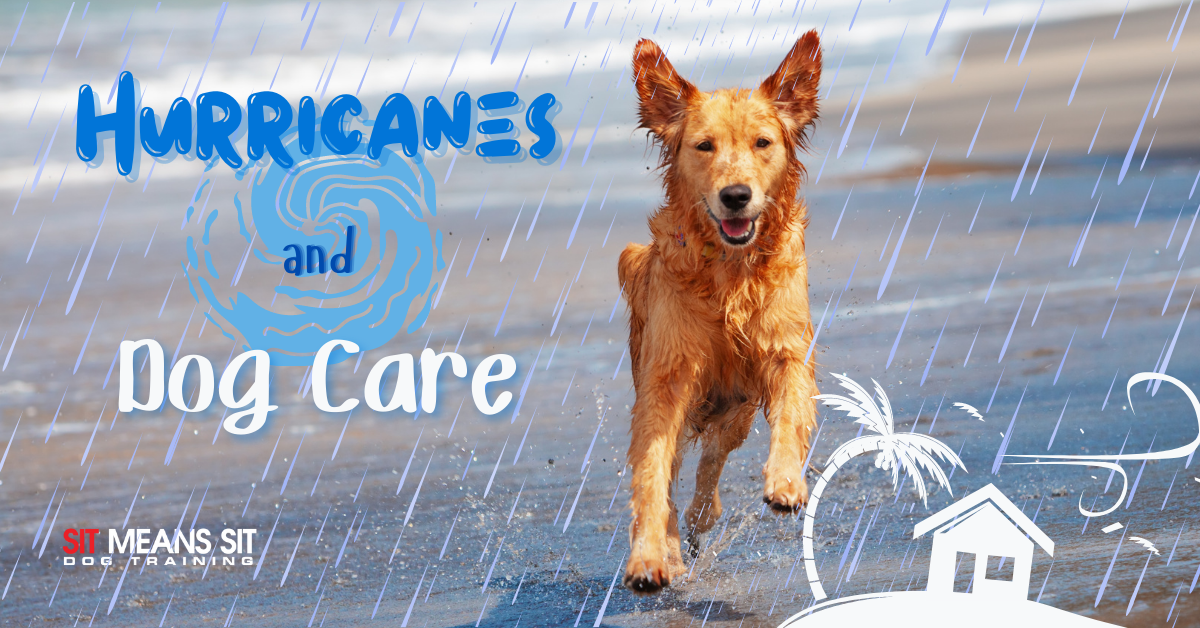
Hurricane and Pets: What To Do
Hurricanes can be extremely serious and scary to go through, especially if you have a dog to worry about. Dogs can be affected severely by hurricanes, whether it’s from anxiety, homelessness, or trying to evacuate. Here are some tips on how to handle storm prepping for your dog and dealing with a hurricane.
Pet Planning Before A Hurricane
Hurricane preparation is crucial for your dog to have a safety plan already set up before the storm hits. Being prepared means that you plan to execute what you have already deemed as the safest path possible for you and your dog, whether this is hunkering down or evacuating.
Emergency Dog Kit
Your pet will need to have their essentials ready for when the hurricane comes, this ‘kit’ should include:
- 2 weeks supply of dog food (and a can opener if necessary)
- 2 weeks supply of water for you and your dog
- Food and water bowls (collapsible if possible)
- Dog’s medical records and proof of vaccination (2 weeks supply of prescription medications if on any)
- ID tags on your pet’s collar or harness
- Dog first aid kit-gauze pads, cotton balls or swabs, adhesive tape, hydrogen peroxide, OTC antibiotic ointment, saline eyewash, alcohol wipes, etc.
- Plastic bags and poop bags
- A durable leash
- Collapsible dog carrier with your contact information labeled
- Extra: leash, bed, blanket, and treats
Keep Up Vaccinations
You will need your dog’s vaccination records (and have them up-to-date) if you have to be admitted to a boarding facility, shelter, or vet office. During a hurricane, your dog may be exposed to bacteria like leptospirosis in floodwater. This is why keeping up with vaccinations is so important, as they can likely help prevent any diseases from being developed by your dog.
Microchipping?
Microchipping can be done by most vet offices and it is a permanent form of identification. ID tags are still a necessity even with microchips, but this is an extra precaution in case the tags go missing from your dog.
Microchips allow you to locate your dog by a scanning device used by human societies/shelters, animal control, and vets. So if your dog happens to be lost, microchips can make it much easier to find them.
ID Files
If you ever lose your dog, there are ways to ensure you’re the rightful owner of your pooch. An ID file will likely include:
- Up-to-date photo of you and your dog together and your dog alone
- Microchip number
- Adoption papers
- A detailed description of your dog
- Vaccination, diet, and medical history
Emergency Pet Sticker
Dog emergency stickers indicate your house has a dog. This means that in an unfortunate event where you cannot retrieve your dog, someone from emergency services will know they are there and will look for them.
Use The FEMA App
The National Weather Service sends out emergency alerts through the FEMA App and will help you find shelters if needed.
Locate Dog-Friendly Shelters
If you have to evacuate, you and your dog will need to find a shelter. Ask your local emergency management agency about which shelter accepts pets, as a lot of emergency shelters do not allow non-service dogs. Veterinarians, humane societies, and the FEMA App can help with this process.
